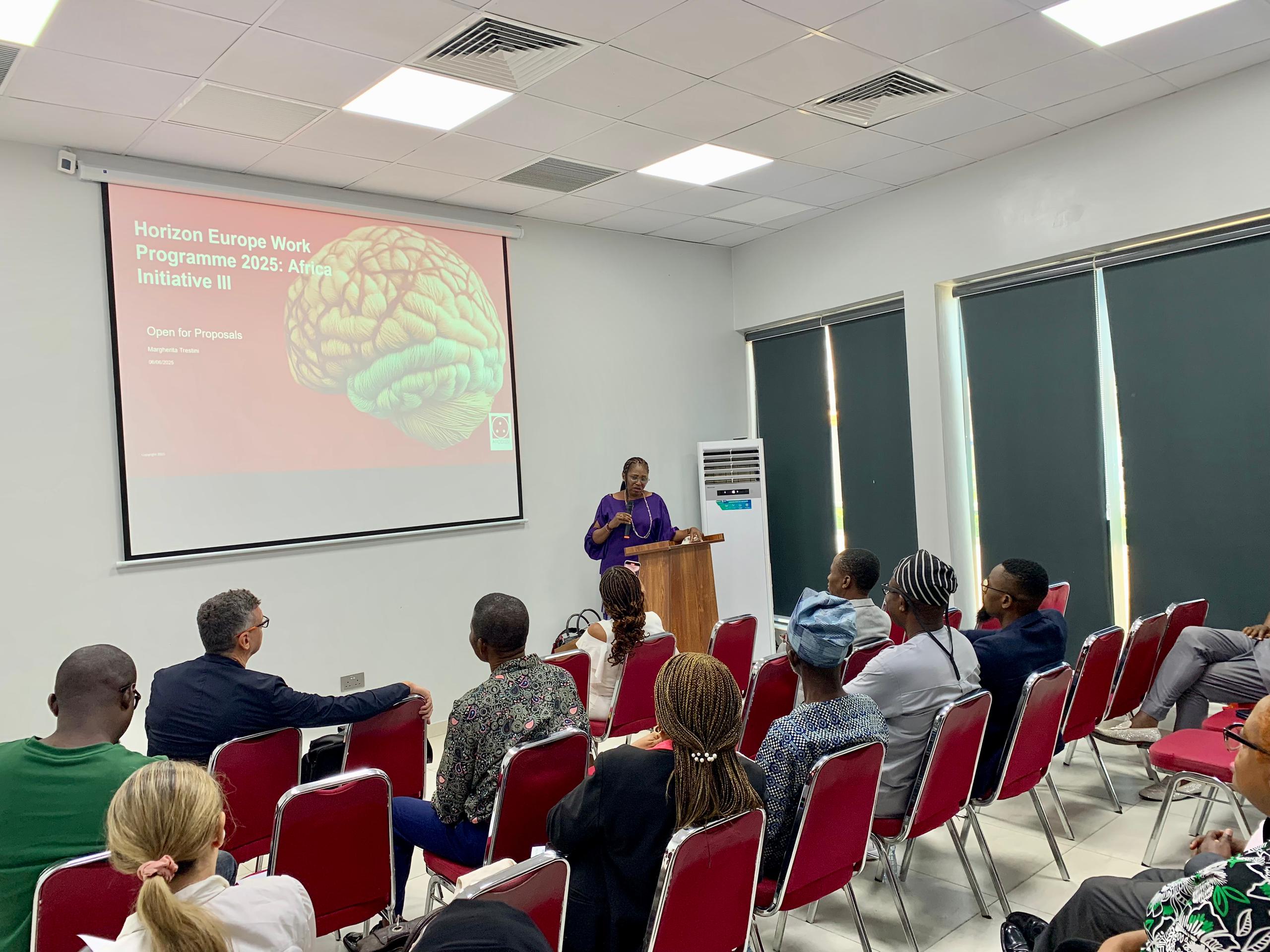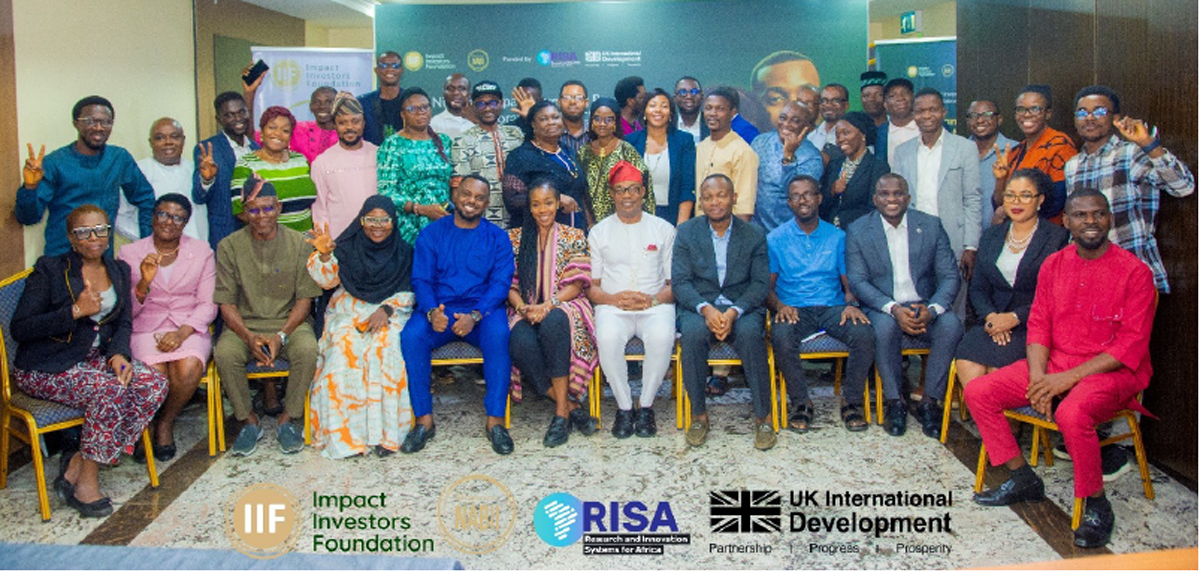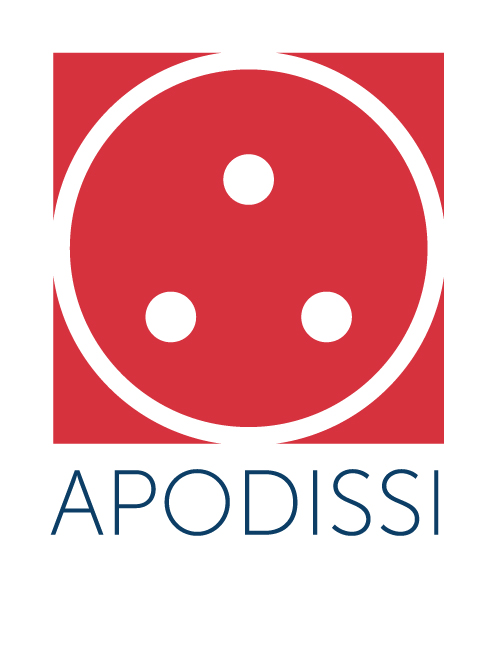Apodissi has been at the forefront of advancing research and innovation in Africa, Europe and the Middle East. Notably, as partner of the Horizon 2020 project DIGILOGIC, it worked to develop the first Eu-African Digital Innovation Hub (DIH) focused on smart logistics.
DIGILOGIC paved the way for startups, SMEs, and innovators to develop smart logistic solutions in close cooperation with industries and investors, ensuring sustainability and success. Apodissi developed a wide network of Digital Innovation Hubs across Europe and Africa and identified models for development of EU-Africa DIHs sustainable collaboration.
We’re now excited to share our experience with the five Digital Innovation Hubs funded by GIZ Digital Transformation Centre in Nigeria. Our team was present at the proposal writing and funding bootcamp as mentors to support the digital transformation of Nigerian MSMEs through five digital innovation hubs, the DigiAlliance, WiderNet Farm, Women Venture Studio, Farm to Table, and Bridge4Scale.
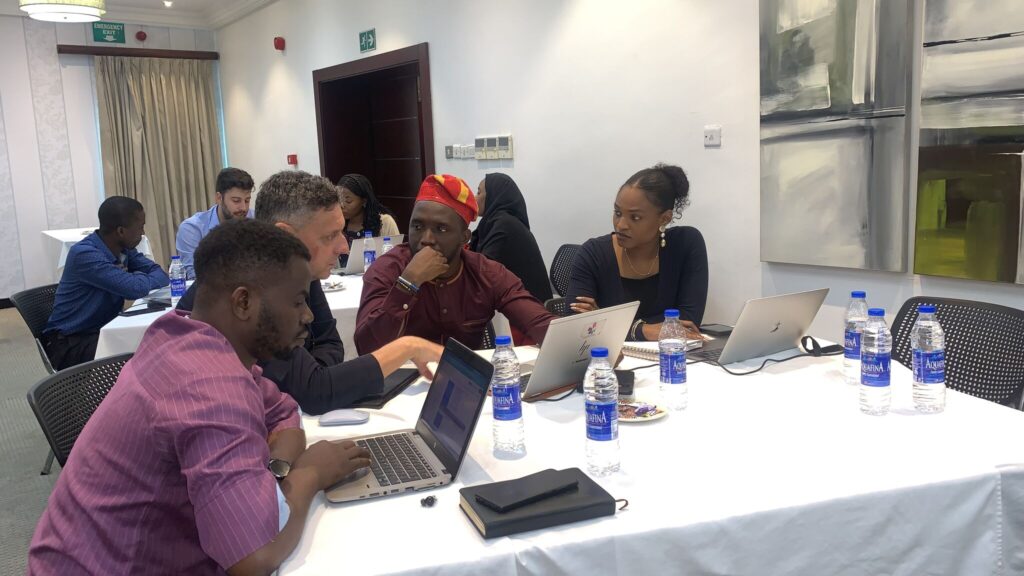
The boot camp which was another pilot event following the inception workshop that happened last year to support these Innovation Hubs as they build internal capacity that will help MSMEs improve their efficiency and turnover. This event also had our team as mentors.
Talking of pilot work, a research was also conducted by Apodissi on the Characterisation and Digital Maturity Assessment of the Nigerian MSMEs to support Digital Innovation Hubs in boosting the digital capabilities of Nigerian MSMEs and help both private and public enterprise identify the technology readiness of MSMEs in different states of the country.
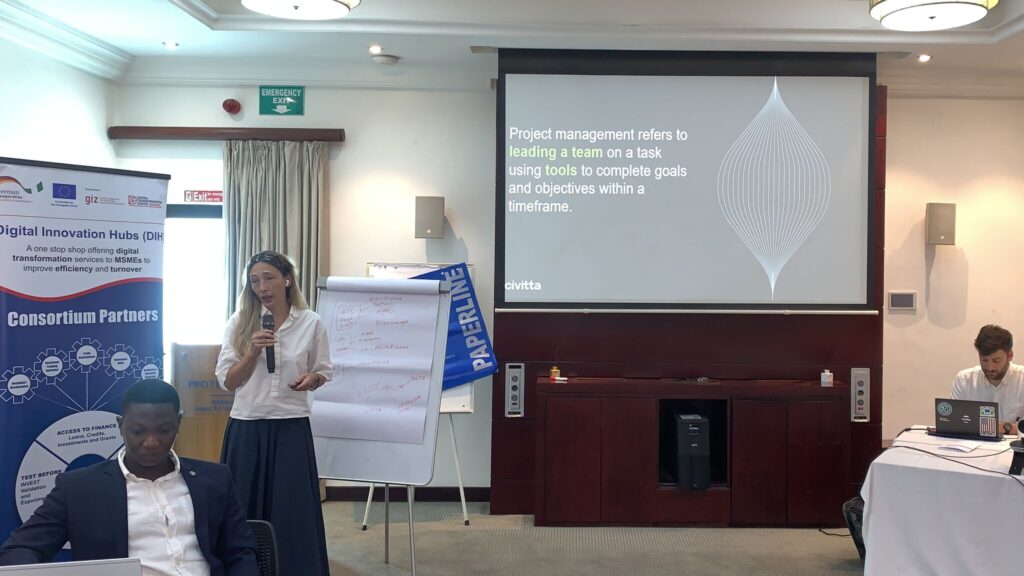
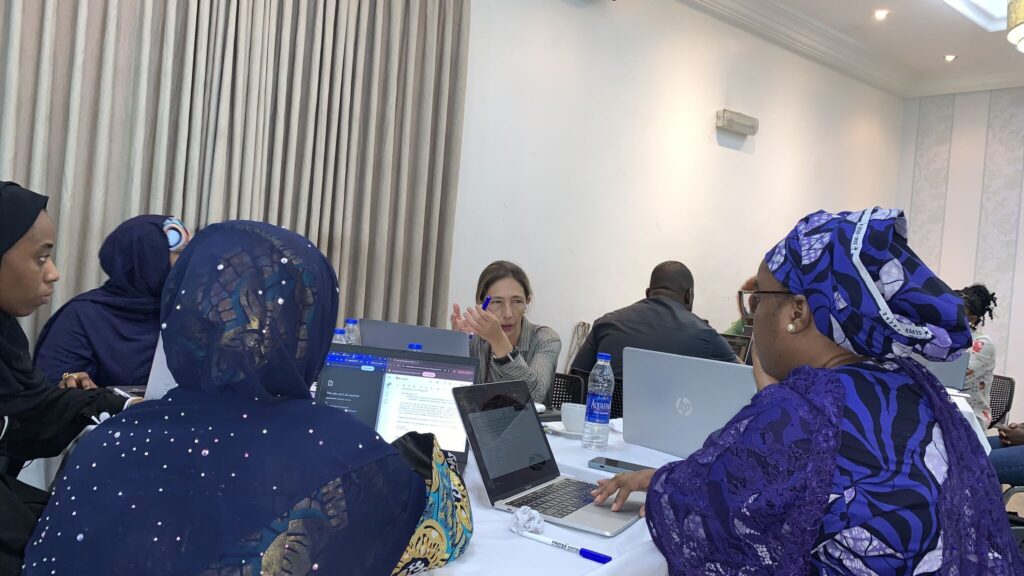
The 3-days bootcamp that happened in Lagos on 10-12 September, was organised by Civitta and GIZ Digital Transformation Center DTC to equip the DIHs on how to prepare proposals for funding acquisition had both our Managing director, Margherita Trestini and General manager and founder of AREA Italia, Adriano Mauro as mentors.
The SME technology transfer company based in Lagos assisted the Boot camp and provided the Nigerian Digital Innovation Hubs with essential skills and strategies to navigate funding opportunities and develop impactful. The training featured other experts from Civitta, African European Digital Innovation Bridge Network (AEDIB NET), Heckerbella, Sterling Bank, Iceberg Plus, Tshimologong-Wits, and Innov8.l
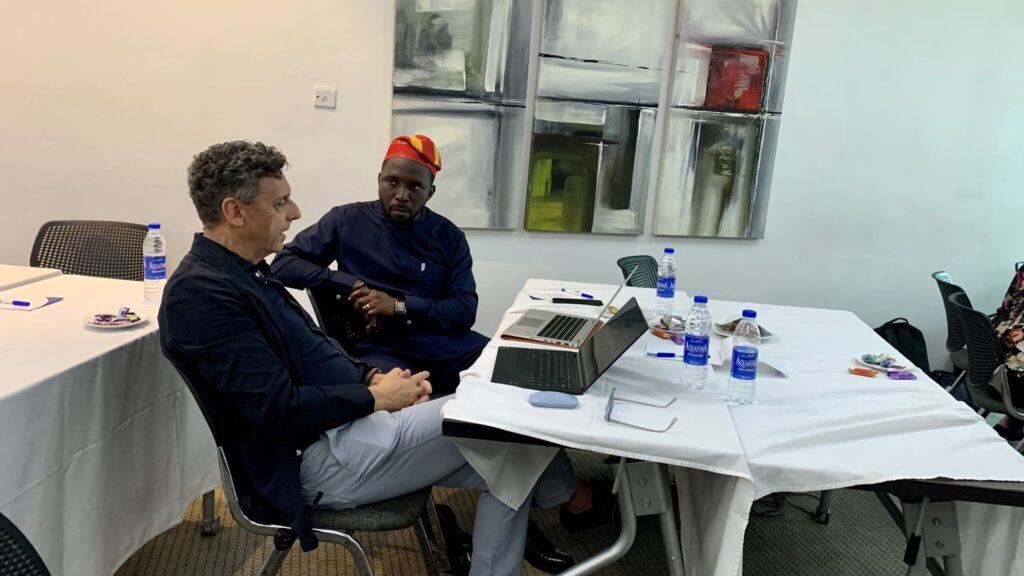
Objectives of the boot camp included:
- Comprehensive training on identifying funding opportunities and writing proposals
- Guidance on designing proposals from implementation to impact
- Aligning Digital Innovation Hub goals with the goal of the call
- Conducting budgeting analysis
- In-depth knowledge of budgeting and record-keeping during project design and implementation
- Identifying challenges in proposal writing, project execution, and future planning
- Engaging the Digital innovation hubs to stay abreast with the latest technologies
- Encouraging creative and innovative solutions for sustainable impact in Nigerian communities
- Strategies for forming consortia and identifying suitable partners
- Building a model for assessing the digital maturity of SMEs
- Prototyping ideas before scaling up production
- Defining key performance indicators (KPIs)
- Facilitating engagement with mentors for brainstorming and inquiries
The boot camp, anchored by Andrea Bonelli, project manager at Civitta, included expert presentations, practical exercises, participant engagements, Case studies, and feedback sessions. Its primary objective was to guide the hubs to conduct successful call analysis by leveraging expert’s knowledge to foster MSME’s efficiency and turnover in Nigeria.
In an opening speech by The Director of GIZ Digital Transformation Centre (DTC), Dr. Thuweba Diwani, she emphasised how Nigerian Digital Innovation Hubs are bridges that foster business development and the boot camp as a key to guide them in the right direction.
Ms. Margherita Trestini, led sessions on pipeline building and call analysis, providing strategies to identify funding opportunities and how hubs can target applications effectively. Ms. Reesi Lepa, Associate Partner at Civitta, emphasised the importance of finding relevant funding opportunities and crafting innovative ideas for sustainable impact in local communities. A senior Consultant at Civitta, Ms. Elo Meier, explained the differences between grants and tenders from public funding, with grants requiring predictions of projects while tenders forecast outcomes.
Different funding programs have varied priorities and timelines, making it essential for the hubs to assess current situations while writing proposal plans. When writing proposals, address each stage to enhance capabilities and increase the chance of being awarded funds. Ms. Elo added the importance of addressing the key questions—why, how, what, and who—when crafting proposals.
During the call analysis sessions, six experts mentored the DIHs. Mr. Adriano Mauro guided the DigiAlliance hub, emphasising the need to pay close attention to details in proposal selection. Reesi Lupa provided Wider Net Farm with insights on preparing proposals and evaluating business feasibility, while Yemi Keri helped Bridge4Scale refine their search for suitable opportunities. Ms. Margherita advised Women Venture Studio to align their proposals with the African Union and European Union agenda, an essential element to look out for in most EU-funded projects, and Mr. Ionut Tata helped Farm to Table identify suitable calls that align with their goals.
In a presentation by Ms. Margherita, she stressed that project management involves five key stages: inception, planning, execution, monitoring, and closure. Adding that writing a successful proposal comes in stages, and it is vital that hubs define every stage of actions taken. Mr. Andrea Bonelli from Civitta added that effective project management requires digital tools and an online presence, including a professional email, an optimised website, and a LinkedIn profile. Elo Meier emphasised the importance of well-developed concept notes for identifying relevant partners and collaborators.
Ms. Yemi Keri, CEO of Heckerbella, highlighted the need to review and monitor budgets to allow for adjustments. She advised allocating 50% of costs to operations, 30% to growth, and 20% to contingencies, with revenue exceeding expenditures to generate capital. Emmanuel Oladele, technical advisor at GIZ DTC contributed during this session, giving more insights on budget planning activities and methodologies that will guide DIHs on a clear road map of action and goals.
“It is crucial to assess the digital maturity of an SME from implementation to impact as a Digital Innovation Hub.” Mr. Ionut Tata stated during the case study session of the boot camp. Digitisation should be evaluated based on the MSME’s field of expertise, years of operation, and legitimacy of activities. The questionnaire and model must align with the MSME’s information, from internet and website usage to more advanced technologies. Farm to Table DIH participants contributed to the discussion by sharing their experience in assessing the impact of digitalisation on MSMEs.
During an experience-sharing session, Mark Harris, CEO at Tshimologong took the participant on how his hubs collaborated with private sector entities, bilateral agencies, government bodies, and universities to uplift impoverished communities and create meaningful employment opportunities.
Numerous funding opportunities exist across the private, public, and banking sectors. Ezinne Nwokafor, Group Head of Business Banking from Sterling Bank, emphasised aligning the opportunities with business goals and seeking mentorship when necessary.
The GIZ announced its plan to organise a study tour to Europe for the five Nigerian Digital Innovation Hubs to attend the European Innovation Hubs conference. The goal is to build networks to foster future collaboration between Europe and Africa.

